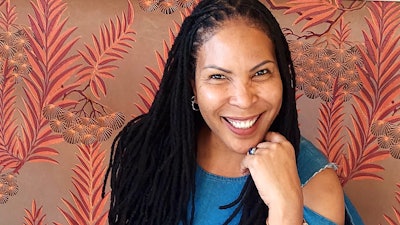As my high school basketball coaches taught me, it is not the defense that stops you; it is failing to see the opportunities. There is always somewhere to pass, dribble or score.
Now that I am an Afrocentric academic and publisher, I don’t want to miss any opportunities to liberate, elevate, and expand Black voices.
I have grown my company, Universal Write Press, from a school-based concern that worked with superintendents to help young children create and publish their own books into a publisher of Black scholars fully parallel to university presses. At the height of the Black Lives Matter movement, we entered a partnership with SAGE Publishing to gain greater marketing and distribution, and they remain a critical co-conspirator. Dr. Ayo Sekai
Dr. Ayo Sekai
But as we all join together to fight censorship this month during Banned Books Week, we have to reckon with the fact that for Black authors struggling for equality and social justice, Banned Books Week can feel like a 52-week affair. Throughout history, many books written by Black authors or addressing issues related to the Black community have been banned or censored. This suppression often stems from racist ideologies and a desire to maintain the status quo of oppression. Banning these books is a way of silencing Black voices and perspectives.
In the “publish or perish” profession, Black academics, in particular, exist at the margins of the publishing world, with unsteady access to the lifeblood of their careers. Black faculty are often overloaded with teaching work and special projects that limit their time for research. When they do have research written up and ready to submit to journals, nonwhite academics are less likely to be journal editors, they wait longer for acceptance of their submissions, and their published work gets cited less. Among the people who comprise the publishing industry, 76% are white versus just 5% Black.
![Ayo Sekai1[407085]](https://img.diverseeducation.com/files/base/diverse/all/image/2023/10/AyoSekai1_407085_.651e06b004174.png?auto=format%2Ccompress&crop=faces&fit=crop&h=48&q=70&rect=0%2C28%2C1483%2C834&w=48)




















